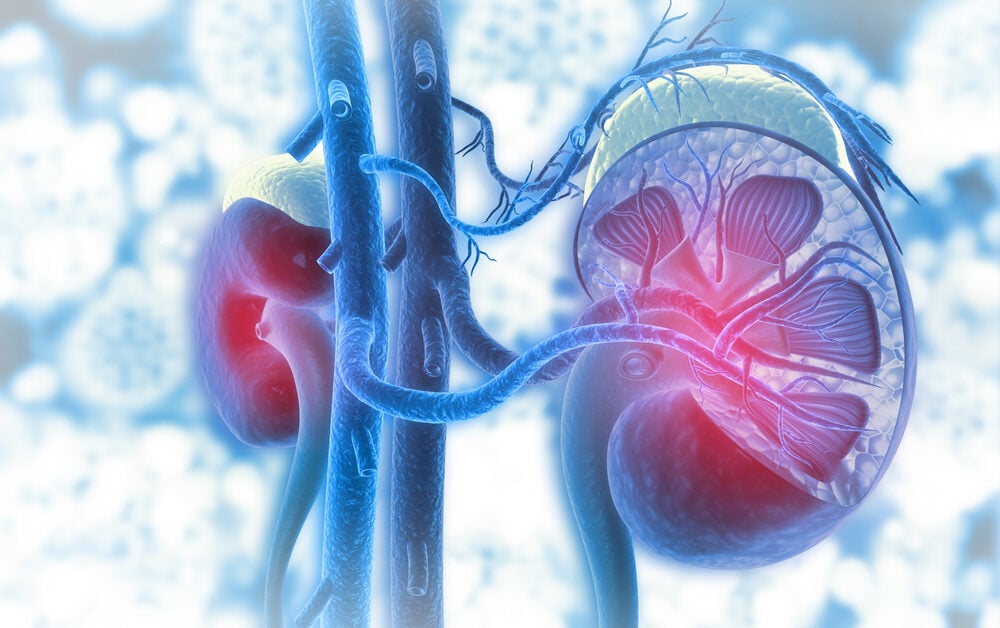Novartis has entered into an agreement to acquire Chinook Therapeutics, a Seattle, Washington, based clinical stage biopharmaceutical company with two high-value, late-stage medicines in development for rare, severe chronic kidney diseases.
The agreed deal, which is subject to customary closing conditions, is in line with Novartis’ strategy to focus on innovative medicines and will expand its renal portfolio, complementing the existing pipeline.
“IgA Nephropathy is a devastating disease mostly affecting young adults and potentially leading to dialysis or kidney transplantation. We are excited by this unique opportunity to address one of society’s most challenging healthcare issues, with the potential to bring additional much-needed treatment options to patients,” said Vas Narasimhan, CEO of Novartis.
“We look forward to closing the deal, to a smooth transition for Chinook employees and to welcoming them to Novartis.”
Chinook Therapeutics’ pipeline includes two late-stage assets in clinical development to treat immunoglobulin A nephropathy (IgAN), a progressive, rare kidney disease that mostly affects young adults and currently lacks targeted treatment options. As many as three in 10 patients progress to kidney failure and dialysis within 10 years.
Atrasentan, an oral endothelin A receptor antagonist (ERA), currently in phase 3 development for IgAN with pivotal readout expected in Q4 2023, has shown significant reductions in proteinuria. Atrasentan is also in early-stage development for other rare kidney diseases.
Zigakibart (BION-1301) is a subcutaneously administered anti-APRIL monoclonal antibody; a Phase 3 trial in IgAN is expected to start in Q3 2023.
Chinook Therapeutics has experience in modeling and understanding kidney disease and a promising early pipeline to address a number of severe renal conditions.
Novartis and Chinook Therapeutics transaction details
Under the agreed deal, which has been unanimously approved by the boards of both companies, Novartis will acquire Chinook Therapeutics for a total value of up to $3.5 billion with the transaction being in the form of a merger of Chinook Therapeutics and a newly formed Novartis subsidiary.
Holders of Chinook Therapeutics common stock would receive $3.2 billion ($40.00 per share) in cash upon closing, plus a contingent value right with a value of up to $0.3 billion ($4 per share), payable in cash upon the achievement of certain regulatory milestones. The transaction is expected to close in the second half of 2023, subject to customary closing conditions, including approval of Chinook’s stockholders and receipt of regulatory approvals. Until the deal closes, Chinook Therapeutics will continue to operate as a separate and independent company.
About IgAN
IgAN is a progressive, rare kidney disease that mostly affects young adults and currently lacks targeted treatment options. In IgAN, autoimmune reaction to an abnormal form of IgA results in formation of immune complexes that deposit in the kidney. These immune complexes trigger inflammation and kidney damage leading to progressive loss of renal function.
In the U.S., IgAN affects up to 21 people per million in a year, with higher incidence in Asian populations. IgAN is the most common cause of kidney failure in Caucasian young adults.
With increasing damage to the kidneys, proteinuria (protein in the urine) and hematuria (blood in the urine) can occur. IgAN patients with higher levels of protein in their urine (≥1 g/day) are at higher risk of disease progression, with about 30% progressing to kidney failure within 10 years. Availability of new treatments targeting different disease pathways are transforming the treatment landscape for patients with IgAN and offer the prospect that patients with IgAN do not develop end-stage kidney disease in their lifetime.
Atrasentan and zigakibart
Atrasentan has demonstrated a significant reduction in proteinuria versus baseline in a phase 2 study, with good tolerability, including liver safety profile. Zigakibart is a targeted biologic therapy with the potential to address the root cause of IgAN, the production of abnormal galactose-deficient IgA, and preserve kidney function.
Interim phase 1/2 data showed an impressive reduction in proteinuria versus baseline. As a targeted therapy, zigakibart is expected to have a better tolerability profile than broader-acting lymphocyte-depleting therapies.





